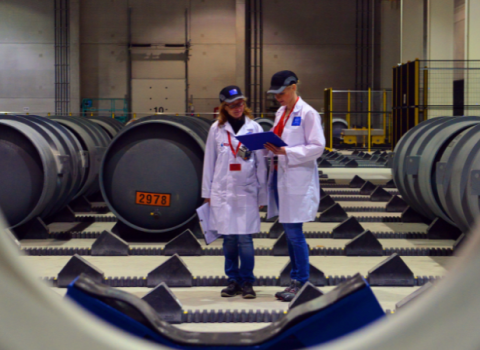For David Eyton, Group Head of Technology at BP, Europe is at a fork in the road as it seeks a sustainable, affordable and secure supply of energy. A decade of research and innovation has produced a wide array of new energy technologies, but many come with a high price tag.
Europe’s energy challenge differs from that of America or China, Eyton says. Oil and gas are scarce across the EU’s 28 member states. To develop new sources of oil and gas, “you can go on moving into newer and more difficult parts of the world—the Arctic would be a good example —and try and capture the next piece of oil there.”
Or you can tap technologies such as enhanced oil recovery, which can significantly increase the percentage of crude extracted from each reservoir. “If we can actually get 60 or 70 per cent of the oil out of the ground, by advances in technology like enhanced oil recovery, then we have less need to go elsewhere,” Eyton says. That would be a marked improvement on today, when on average only a third of the oil contained in any reservoir is recovered.
Europe consumes 13 per cent of the world’s energy. With less than one per cent of global oil and gas reserves, the European Union cannot afford to walk away from fields where two thirds of the oil is still remaining in the ground; it needs to make the most of its resource endowment. For that reason, Eyton says, enhanced extraction sounds like the kind of canny, cost-effective investment that would support Europe’s move toward “Energy Union” or a single European energy market.
Technology that improves the extraction of unconventional gas, including shale gas and tight gas offers another opportunity to increase Europe’s energy supply. A shale gas boom in the US has dramatically increased US gas reserves. “We have been a big player in this field going back to the 1950s. This is something we continue to invest in,” says Eyton, who joined BP in 1982, straight from Cambridge University.
Having secure energy supplies is one part of the answer to the EU’s complex energy challenge, but new technologies can also contribute to curbing greenhouse gas emissions through energy efficiency and new low-carbon fuels.
“The performance of [car] engines has improved by something like 2 per cent per annum over the last decade through better fuels, better lubricants – those are things that we produce – and better engines,” he explains. “Over this period, when lots of people were hoping that electric [cars] would improve significantly and gain an advantage over the internal combustion engine, the goalposts have moved and the [standard car] has improved. We have played our part in that.”
Then there’s bioenergy, which holds a lot of potential to help speed the transition to a low-carbon energy system. “Biofuels was the energy business if you go back a few hundred years,” says Eyton. “It was how the world powered itself before the industrial revolution.”
Brazil is one of the best places in the world to grow biomass. BP has been developing biofuels in Brazil since 2008 and it now operates three ethanol mills that harness energy from biological materials such as sugar cane. Biofuels in Brazil is a business that doesn’t require major subsidies, he says. “It’s a viable and profitable business.”
Today biofuels make up almost 50 per cent of Brazil’s transport fuel pool. “Brazil is the Saudi Arabia of the biomass business,” says Eyton. “We want to get more and more out of the biomass we produce and to grow more biomass out of the land that we have there.”
Closer to home, Eyton says he’ll be carefully watching the EU’s progress towards Energy Union. For now it’s just a paper or philosophy, he says. “But, done well, I think it’s key to the future [energy] transition in Europe.”
However, the effort won’t simply fall on policymakers’ shoulders. It’s important to understand the sophistication of the energy system and inform policy-makers, Eyton says, so that they can make wise choices. “Technology groups and academia can help with the understanding of the system—a valuable and important contribution.”





 A unique international forum for public research organisations and companies to connect their external engagement with strategic interests around their R&D system.
A unique international forum for public research organisations and companies to connect their external engagement with strategic interests around their R&D system.